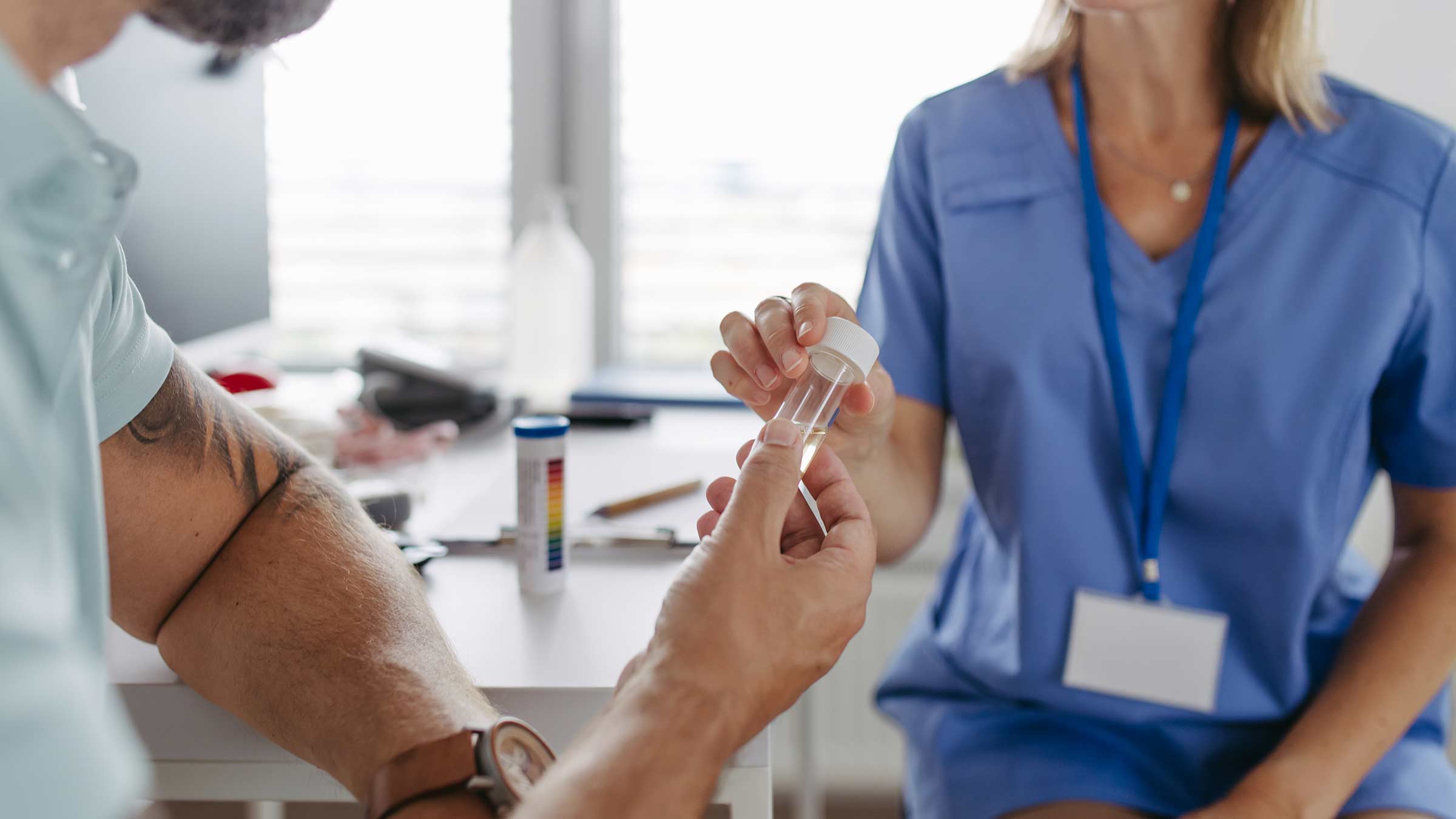
A rare kidney disease, IgA nephropathy was once believed to be relatively benign. But it’s now being taken more and more seriously by the medical community as kidney experts have learned that it can lead to severe kidney damage in a large percentage of patients.
The good news is that we’ve also learned of new, innovative ways to stop or slow down the damage before it really impairs kidney function.
Read on to find out more about this often silent disease and how you can protect yourself.
What is IgA nephropathy?
IgA nephropathy is an autoimmune disease that causes certain antibodies to build up in the filtering units of the kidneys, leading to inflammation and, potentially, chronic kidney damage and failure.
In people with the condition, the body attacks a specific type of these antibodies — referred to as immunoglobulin A (IgA) — when they have fewer than normal galactose sugars.
Other antibodies bind to these galactose-deficient IgA molecules, creating clumps (called immune complexes) that collect in the kidney, causing the inflammation.
If this continues over time, damage occurs.
While rare, IgA nephropathy is underdiagnosed and the most common form of disease affecting the kidney’s filtering units.
It’s unknown what triggers the disease, but it does run in some families, so there may be a genetic link. It’s also believed that there may be certain environmental contributions.
Symptoms and detection of IgA nephropathy
Common initial findings with IgA nephropathy are protein in the urine and blood in the urine that can often only be seen using a microscope. These are typically detected during routine screenings.
Patients can’t see microscopic blood in the urine, but sometimes an upper airway or digestive system infection can lead to visible blood in the urine. Protein in the urine can’t be seen, but if the amount of protein in the urine is large, the urine can become foamy in appearance.
Otherwise, the disease can be very silent.
A definitive diagnosis requires a kidney biopsy, which involves numbing the back and removing a small piece of kidney tissue through a needle to examine under a microscope.
IgA nephropathy treatment
Because it’s a silent disease, we tend to catch IgA nephropathy later, after damage has been ongoing. While we can’t reverse that damage, we can treat the disease to slow or even prevent the progression of the damage.
The goal of treatment is to allow people to keep their own kidneys for a lifetime. This is increasingly possible with treatment methods that have been developed over the past five years.
Four new therapies are approved for use or close to approval in the United States.
Targeted steroid
One currently available treatment is a low-dose steroid that deploys in the gut, where it targets the immune system housed in the small intestine. There, it slows down the production of IgA antibodies that have fewer-than-normal galactose sugars. Because it deploys in the intestine, very little is absorbed systemically, reducing the unwanted side effects that often come with steroid treatment.
Endothelin-system modulator
Another approved drug combines a well-known blood pressure medication with a medication that reduces the function of the endothelin system, which is activated in IgA nephropathy patients and can cause kidney injury.
Complement-system modulator
One drug awaiting full approval slows down part of the immune system called the complement system, which causes damage when activated in the kidneys of IgA nephropathy patients. However, this drug has received accelerated approval and can be prescribed for patients now.
B-cell modifying drugs
Still in trials are a number of medications called B-cell modifying drugs. B-cells are a type of immune cells that can produce antibodies, such as abnormal IgA antibodies or the antibodies that bind to them. The hope is that the drugs will control production of these abnormalities.
Making lifestyle changes to control IgA nephropathy
There are also lifestyle changes patients can make to help support kidney function.
- Control blood pressure. High blood pressure in the setting of any kidney disease speeds up the decline of kidney function.
- Control cholesterol and other heart disease risk factors. Kidney disease raises the risk for cardiovascular disease, so work with your primary care physician to ensure a healthy heart.
- Limit salt intake. Sodium can impact blood pressure as well as increase urine protein levels.
- Avoid gluten if sensitive. Because gluten-related disorders can cause production of IgA, we recommend patients with such a condition follow a gluten-free diet.
- Maintain an appropriate weight.
- Don’t smoke.
The importance of controlling IgA nephropathy
While a normal urine protein level is 100-150 milligrams per day, we once considered IgA nephropathy patients stable if we detected about 10 times that amount (1 gram per day) in their urine.
We now know that 20% to 30% of patients with less than 1 gram of protein in the urine per day will go on to develop end-stage kidney disease. This can result in patients needing dialysis and transplantation.
This is why we need to be aggressive in detecting and treating IgA nephropathy, getting it under control as quickly as possible, making sure patients stay in remission and preserving kidney function for the rest of their lives.
It represents a huge change in the way we take care of patients with the disease.
What you can do to monitor for IgA nephropathy
Earlier intervention is always better than addressing the condition after there’s kidney damage, so it’s important to detect IgA nephropathy before symptoms appear.
Because there’s no regular screening for kidney disease, it’s important to advocate for yourself. If you develop high blood pressure, ask your doctor to evaluate your kidneys. If you see your doctor annually for a physical, ask for a urinalysis.
If there are abnormalities, such as blood or protein in the urine, ensure they are seriously reviewed. If the response is, “Let’s watch it,” that’s the wrong response — get another opinion.
Blood in the urine may be quickly attributed to a urinary tract infection or a kidney stone that has passed. But, if your primary care doctor or a urologist can’t find a definitive answer, don’t just forget about it. Follow up on any abnormality, and consider asking for a referral to a kidney physician.

Concerned about kidney disease?
Our kidney disease experts provide rapid diagnoses and innovative therapies tailored to patient needs.
Learn more or schedule an appointment




